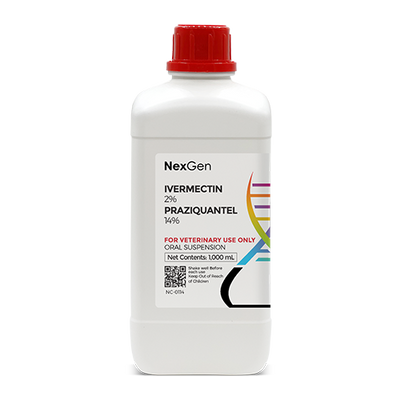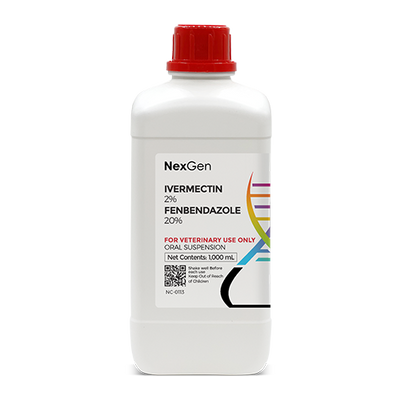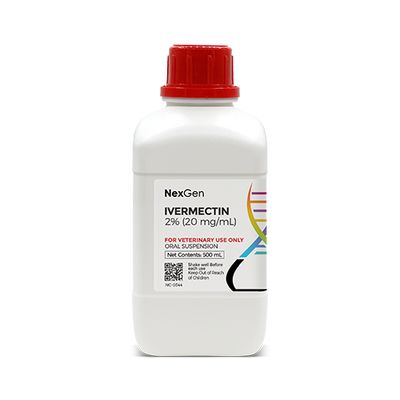
Ivermectin 1 %, Oral Suspension, (1000mL)
Login for pricing
- Brand
- Mixlab
- SKU:
- NC-0083
- Product Type:
- Suspension
- Size:
- 1000ml
- Administration:
- Oral
- Therapeutic Class:
- Antiparasitic
Ivermectin is a drug mixture of two structurally semisynthetic lactones that is used in veterinary medicine as an anthelmintic, boticide, acaricide, and insecticide. Ivermectin has a broad spectrum of activity against intestinal and insect parasites, and kills migrating larvae.1 Ivermectin is widely prescribed by veterinarians in all horse deworming programs because of its efficacy.
Ivermectin is known to provide effective broad spectrum control of:
- Small strongyles, including those resistant to some benzimidazole class compounds (adults and fourth-stage larvae): Cyathostomum spp., Cylicocyclus spp., Cylicostephanus spp., Cylicodontophorus spp., Gyalocephalus spp., Triodontophorus spp. (adults)
- Intestinal threadworms (adults): Strongyloides westeri
- Pinworms (adult and fourth stage larvae): Oxyuris equi
- Ascarids (adult and third and fourth stage larvae): Parascaris equorum
- Hairworms (adult): Trichostrongylus axei
- Large-mouthed stomach worms (adult): Habronema muscae
- Neck threadworms (microfilariae): Onchocerca spp.
- Bots (oral and gastric stages): Gasterophilus intestinalis, G. nasalis2
Swelling and itching reactions after treatment with ivermectin have occurred in horses with heavy infections of neck threadworm microfilariae.1 Since equine dewormers have been known to be toxic to dogs and cats, cleaning of barn aisles, wash-racks, etc. is recommended after administration, particularly in operations in which dogs and/or cats are known to be present.
Ivermectin 1% suspension (1000 ml) by NexGen provides a first-line deworming solution for your equines, and is safe for pregnant mares, breeding stallions, and foals of any age.
FOR RX ONLY: A valid prescription from a licensed veterinarian is required for dispensing this medication.
1equimed.com.
2drugs.com.




















